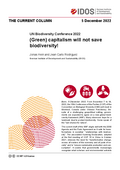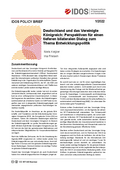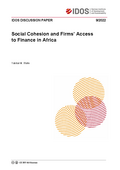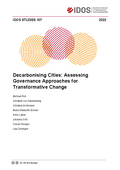-

Publications
Photo: www.shutterstock.com/de/image-photo/pont-du-gard-old-roman-aqueduct-45688924
Publications
The German Institute of Development and Sustainability (IDOS) publishes four independent publication series. IDOS researchers publish their current research results in Discussion Papers, Policy Briefs and Studies. Visiting scholars and cooperation partners also have the opportunity to publish their research results in one of the IDOS series. Publications from the series Analysen und Stellungnahmen, Briefing Paper and Two-Pager / Zweiseiter, which will be discontinued in 2022, will continue to be available online. The fourth publication series is for opinion pieces: The Current Column regularly comments on the latest developments and issues in international development policy.
IDOS researchers also regularly publish their research results in peer-reviewed and non-peer-reviewed German and international journals and publication series of other research institutes and institutions as well as with renowned book publishers. In addition, they use blogs and online platforms of partner institutions to communicate the Institute's research and advisory activities to an interested public.
Found 9409 results in 14 milliseconds. Displaying results 1921 to 1930 of 9409.
-
Challenges and possible solutions to conducting quantitative surveys with displaced populations
-
Democracy support and peaceful democratization after civil war: a disaggregate analysis
-
Slow onset climate risks require a strong governance mechanism
-
Die Agenda 2030: Wege von der Vision zur Wirklichkeit; weitermachen wie bisher ist keine Option
-
The wise Persons group’s verdict: opportunities and challenges to restructuring the European financial architecture
-
More than money: does climate finance support capacity building?
-
The role of institutions and macroprudential policy in managing spillovers from quantitative easing policies
-
Central banking, climate change and green finance
-
The effectiveness of unconventional monetary policy in Japan
-
From networks and platforms to forums: knowledge cooperation in implementing the sustainable development goals (SDGs)












